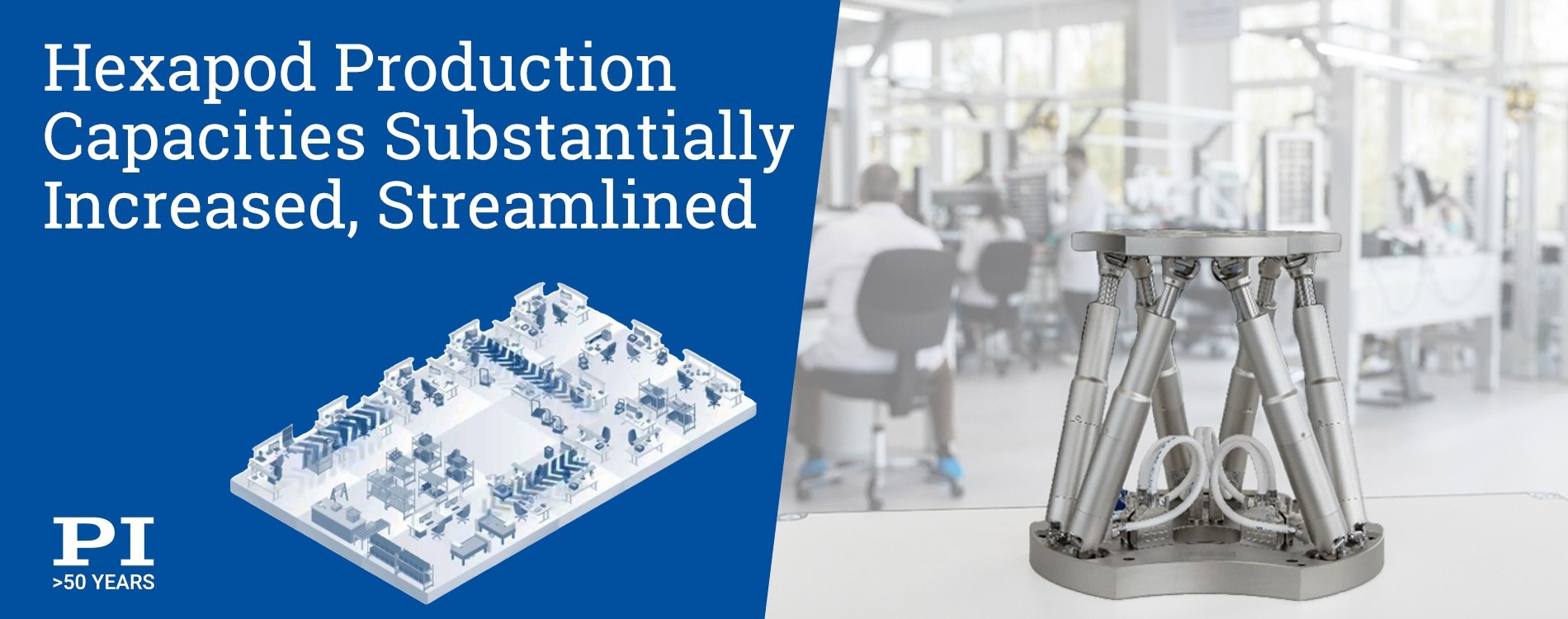Karlsruhe, Germany – Based on a comprehensive analysis of the production processes for hexapods (Stewart Platforms), Physik Instrumente (PI) has adapted its production capacities to the sharp increase in demand and is prepared to expand them even further when required. The focus of the restructuring was the optimization and relocation of PI’s entire “Hexapod” micro-robotics production area to newly designed premises, as well as the expansion of the workforce. These measures are an integral part of the company-wide investment program with a volume of close to $70 million. The aim is to capitalize on PI's above-average growth opportunities in markets such as Industrial Automation, Semiconductors, Photonics, Microscopy and Life Sciences.

Image Credit: PI (Physick Instrumente) LP
“The demand for hexapod micro- and nano-positioning systems has been increasing significantly for a number of years,” says Markus Spanner, CEO of PI, describing the market situation. “Expanding capacity in this product division at PI’s Karlsruhe, Germany site was therefore a logical step as part of our investment program to prepare all PI product divisions for a continued increase in demand.”
The new hexapod production factory layout was developed by PI experts, with the support of specialists from the Fraunhofer Institute for Manufacturing Engineering and Automation IPA. It takes the latest findings in the fields of ergonomics, digitalization, and automation, as well as lean approaches into account. “We have analyzed all process steps and optimized and reorganized assembly in the form of matrix production,” explains Dr. Axel Widenhorn, Director Operations for the PI development and production sites in Germany. “In addition to an overall increase in production capacities, our goal was to significantly reduce lead times. This has been fully achieved. We have already reduced lead times to less than half of what they were at the beginning of the year and will be down to a few weeks for standard products by the end of the year. Additionally, we now have the potential of increasing the output by more than 100 %, which will allow us to respond flexibly to further increases in demand,” adds Dr. Widenhorn
Hexapods are 6-axis, parallel kinematic motion systems or micro-robots, with six degrees of freedom that are used in an increasing number of applications including: micro-assembly production lines, fiber optical alignment, Silicon Photonics wafer probing, camera testing, satellite antenna testing, microscopy, and large astronomical telescopes. PI has an extensive portfolio of configurable solutions of various sizes and capabilities for these and many other applications. The redesigned factory layout for PI's hexapod production was developed according to the latest ergonomic findings and taking lean principles into account. As a result, capacities have been significantly increased while lead times have been shortened at the same time.